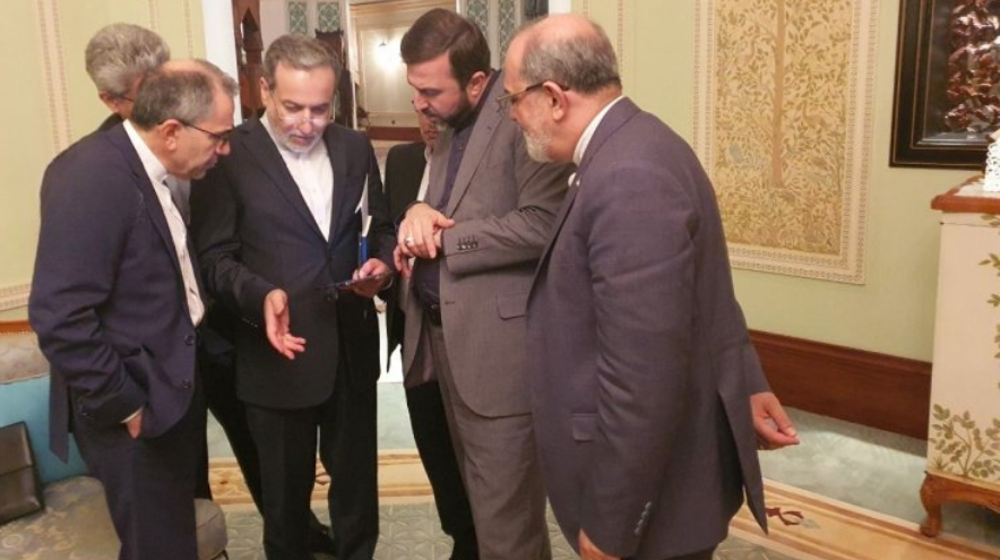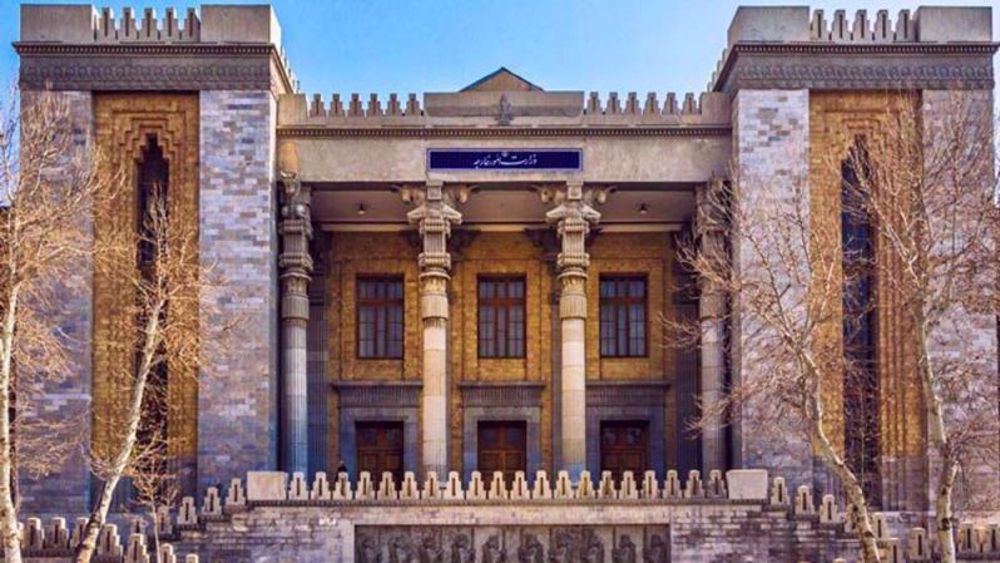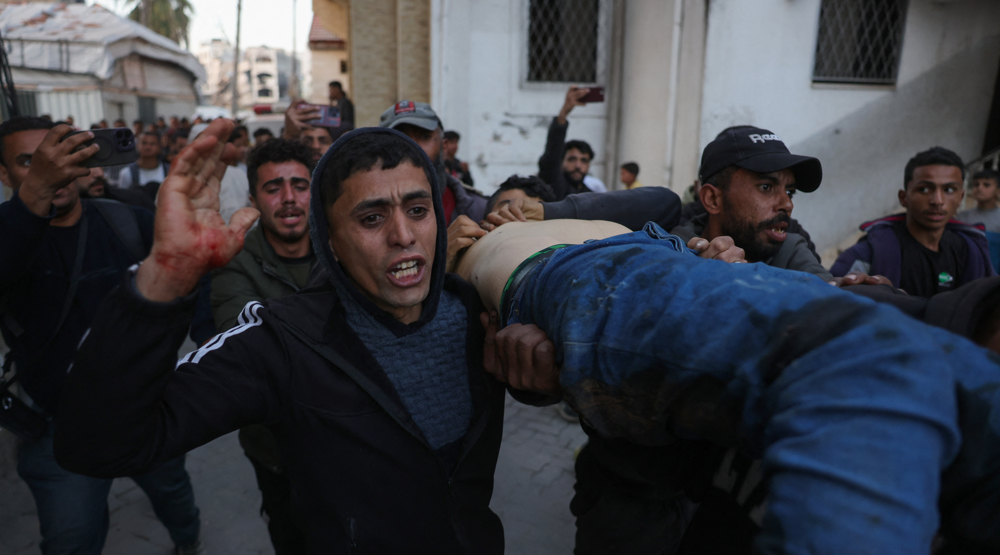Iran says serious about exchange of prisoners with US
Iranian Foreign Minister Mohammad Javad Zarif has publicly expressed Tehran’s preparedness for a prisoner swap with the US, saying he has been authorized to negotiate the deal with American officials.
“I can involve myself on these issues (Iranian and US prisoners) as a foreign minister… when there is a possibility of an exchange... We have a separate judiciary, and the judiciary says that they have committed offenses… I may not agree with that, but that’s not my job. My job is to try to arrange for a deal, an exchange; I did it once, we reached an agreement and I put this offer on the table publicly now: exchange them,” Zarif said on Wednesday at the Asia Society in New York, calling on Washington to swap all Iranians jailed in the US and on extradition requests from the US, mostly for alleged violations of US export restrictions and sanctions violations, with those imprisoned in Iran.
“We believe their charges are phony. The United States believes charges against these people in Iran are phony. Fine, let’s not discuss that. Let’s have an exchange. I am ready to do it and I have the authority to do it,” he noted.
Zarif said Iran had proposed a prisoner swap to the Donald Trump administration six months ago but had received no response.
In reaction, the US State Department said in a statement that it advocated for a humanitarian resolution to the case of US citizens detained in Iran. However, it urged Iran to immediately release the American prisoners first.
“We are aware of Foreign Minister Zarif’s recent comments to a NGO in New York regarding wrongfully detained Americans in Iran. We note his reference to a humanitarian resolution of those cases, which we have called for repeatedly,” a State Department spokesperson told Al-Monitor in a statement.
Iran "can demonstrate its seriousness regarding consular issues, including Iranians who have been indicted or convicted of criminal violations of US sanctions laws, by releasing innocent US persons immediately,” the spokesperson added.
Later in the day, Iran’s Foreign Ministry Spokesman Seyyed Abbas Mousavi criticized the State Department’s “hasty” reaction to FM Zarif’s proposal and its call for the "unilateral release" of all US prisoners.
“The reaction shows they lack a proper understanding of the concepts of negotiation, agreement, and exchange,” the spokesman noted.
Mousavi said if there is a will in the US, Zarif’s proposal is "clear" and does not require any "interpretation and clarification."
Zarif’s proposal to exchange prisoners with the United States is serious, but it’s nothing new, the Iranian spokesman said.
“The Iranian Foreign Ministry, within the framework of its responsibilities, is ready to take action on the exchange of individuals convicted and imprisoned in Iran by the country’s Judiciary on specific charges,” he said.
The Foreign Ministry would do so in exchange for both the release of all Iranians jailed in the United States and the granting of nolle prosequis to all those detained in different countries on baseless charges of violating the US’ illegal sanctions or under Washington’s pressure, Mousavi added.
Iran and the US had earlier exchanged prisoners on January 16, 2016, when the Iran nuclear deal, also known as the Joint Comprehensive Plan of Action (JCPOA), was officially implemented.
“In line with ratifications of Iran’s Supreme National Security Council and the Islamic establishment’s general expediencies, four Iranian prisoners, who hold dual nationality, have been released within the framework of a prisoner swap,” Tehran Prosecutor Abbas Jafari Dolatabadi said at the time.
The four released dual-national prisoners comprised Washington Post reporter Jason Rezaian; Saeed Abedini, a Christian pastor; Amir Hekmati, a former US Marine, and another inmate named Nosratollah Khosravi.
The United States in return also released seven Iranians held in US prisons. Nader Madanlou, Bahram Mekanik, Khosro Afghahi, Arash Qahreman, Touraj Faridi, Nima Golestaneh and Ali Sabounchi were the seven Iranian nationals who were released.
Based on the agreement, the US no longer pursued the extradition of 14 other Iranians, as well.

Iran’s enrichment ‘non-negotiable’, talks fruitless under pressure: FM

Iran summons Argentine envoy over accusations against top officials

Iran condemns Israeli war crimes in Gaza, West Bank
Iran’s enrichment ‘non-negotiable’, talks fruitless under pressure: FM
Pentagon officials placed on leave over 'unauthorized' Yemen leaks
Photojournalist killed in Israeli bombing of family home in Gaza
China says 'not afraid to fight' trade war with US
VIDEO | Press TV's news headlines
Iranian hospital uses angiography for brain vascular treatment without surgery
US to press EU to pull away from China in return for tariff cuts: Report
Muslim prisoners ‘singled out’ for violent treatment in England: Charity








 This makes it easy to access the Press TV website
This makes it easy to access the Press TV website